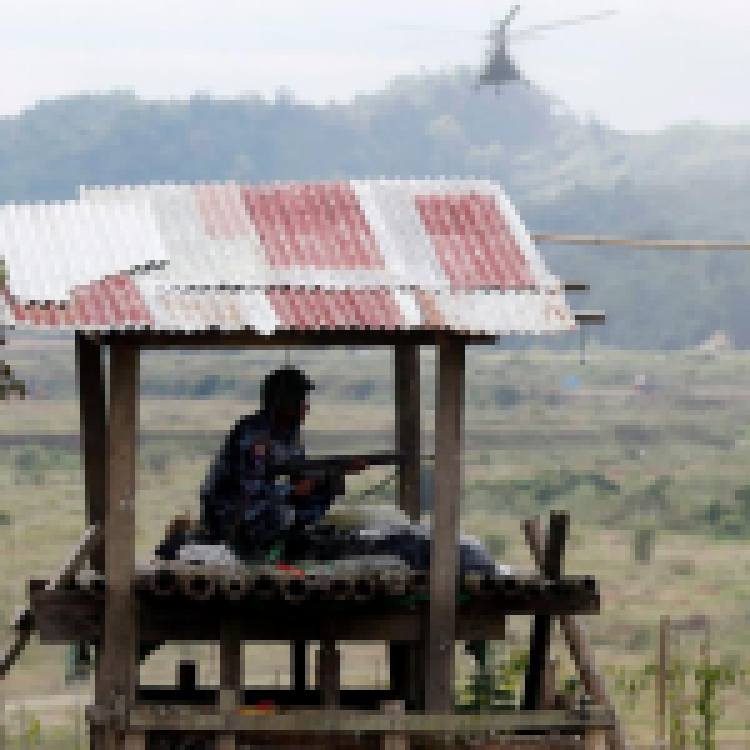![]()
Photograph: Amnesty International
The United Nation special rapporteur on Myanmar, Yanghee Lee, has told the UN Human Rights Council in Geneva, that Myanmar security forces and separatist rebels are engaged in human rights violations in the western states of Myanmar.
Lee told the council:
"The conflict with the Arakan Army in northern Rakhine State and parts of southern Chin State has continued over the past few months and the impact on civilians is devastating. Many acts of the Tatmadaw [army] and the Arakan Army violate international humanitarian law and may amount to war crimes, as well as violating human rights."
This follows a media blackout ordered by the government on June 22. Telecom companies were forced to shut down internet services in Rakhine and the neighbouring Chin state due to the Ministry of Transport and Communications concerns over “disturbances of peace and use of internet activities to coordinate illegal activities”. The army is accused of committing gross human rights violations during this blackout.
The allegation of war crimes follows growing tensions between the predominately Buddhist military and the Rohingya Muslim minority. In 2017 a brutal military crackdown on the northern Rakhine state led over 730,000 Rohingya to flee to Bangladesh. The UN has reported that this crackdown was executed with “genocidal intent” and included mass killings, gang rapes and widespread arson.
Lee further cited the military detaining civilians, mostly ethnic Rakhine men, and interrogating them for suspected connections to the Arakan army. Several have been reported to have died in custody. The army is also accused of opening fire from a helicopter on Rohingya men and boys collecting bamboo, in April of this year.
Myanmar’s government has denied the allegations and asserted that the crackdown was in response to attacks by Rohingya rebels. The Arakan Army is a rebel army operating in Rakhine and the neighbouring Chin state; they are fighting for greater regional autonomy. The army has been accused of violating human rights and of attacking and abducting civilians. This includes 12 construction workers in Paletwa and 52 villagers near the Bangladesh border, Lee reported to the UN Human Rights Council.
Myanmar’s representative to the UN, Kyaw Moe Tun, has stated that the government has declared a ceasefire until August and is committed to national reconciliation but warns that security and freedom must be balanced.
Kyaw Moe Tun, permanent representative of Myanmar to the UN, said that the government had declared a ceasefire until August and was trying to bring about national reconciliation.
"Freedom of expression and media is one of most visible areas of change in Myanmar, […] No restriction is imposed on the use of internet and social media, but we need to strike a balance between security and freedom and rights and responsibility."
Reuters notes that Lee was critical of the blackout maintaining that it “was endangering villagers, obstructing aid and shielding the military”.
The New York Times similar criticised the blackout stating;
"an internet blackout has all but severed parts of the state from the outside world, in a dramatic display of how easily a government can silence a population in the digital age."




